Drums echoed down Progreso Street from the Tantuyo Cultural Center as the scent of corn, coconut, and coffee mingled in the air. Beneath rows of papel picado, women from Venezuela, Colombia, France, Peru, and other corners of the world offered flavors from home — and a glimpse of new beginnings.
The seventh edition of the Bazar de las Mujeres Migrantes, organized by the women’s collective Caminantas, transformed a quiet afternoon in Guadalajara into a celebration of women’s resilience in exile.
Para leer este artículo en español ir a Un Sabor a Hogar: Mujeres Migrantes Reconstruyen sus Vidas con Caminantas
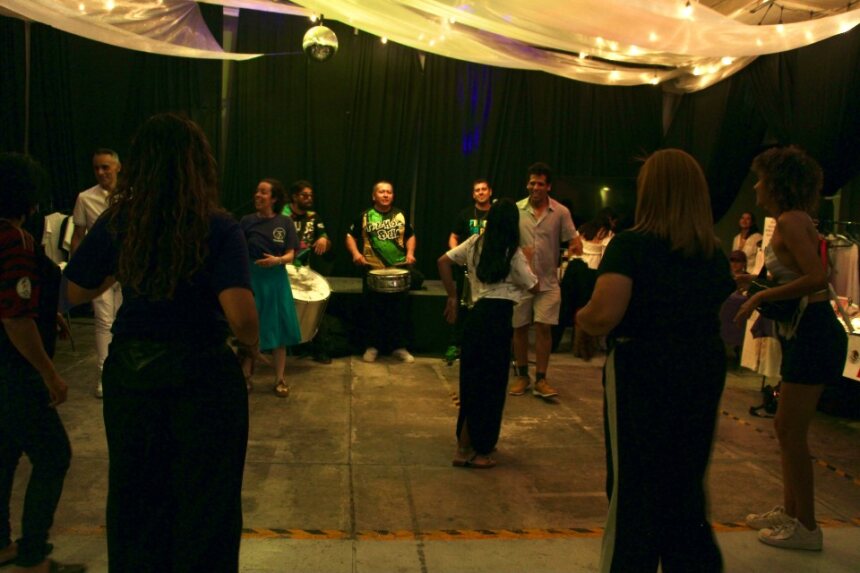
Across the globe, displacement has become a defining reality of this century. Political crises, economic collapse, gender-based violence, and the accelerating impacts of climate change have forced millions to leave their homes — often with little more than a suitcase and hope.
In Mexico, many migrants are women who face a double barrier: as foreigners and as caregivers, they struggle to find dignified work and safety. Others arrive for different reasons — business, studies, or love — yet they, too, need the bonds of solidarity and belonging that make a new life possible far from home.
Caminantas was born from that reality. Its founders understood that empowerment begins not only with economic opportunity, but with belonging — with being seen and accompanied. The bazaar is one expression of that vision, a space where food, art, and conversation weave new networks of solidarity.
“We hold two bazaars a year,” explained Mariángel Vielma, from Caminantas’ outreach area, who came to Mexico from Venezuela. “They’re meant for migrant and refugee women in our network to have a space where they can sell their products and promote their work.”
Over seven editions, the event has become an incubator for small businesses. “Several of them have already managed to build their brands and grow since that first bazaar up to this last one,” she said. One of her favorite success stories is Estefi, a Salvadoran woman who began by selling pupusas at the bazaar and now owns her own restaurant. “The idea is to help the women gain economic autonomy — and to see them thrive, that’s the goal.”
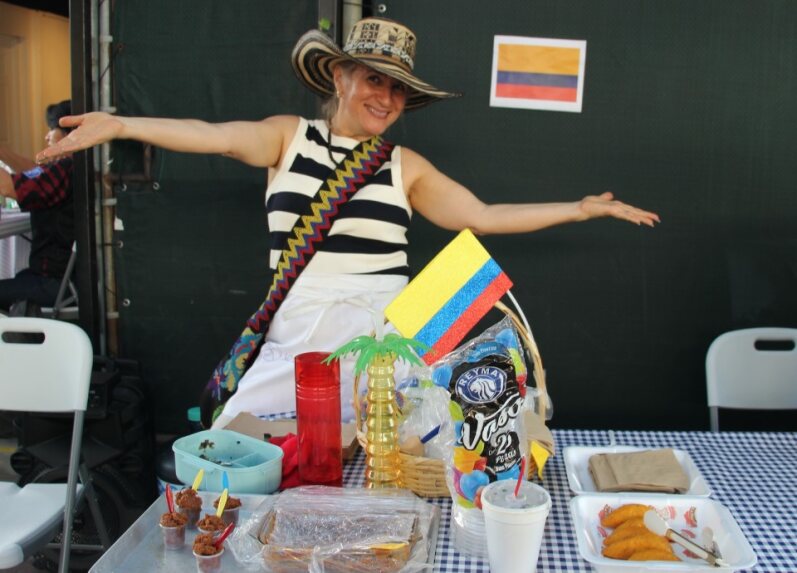
Caminantas began in 2021, an initiative of two Colombian women, Marcela Pérez and Laura Cortés. It started as a small group of Colombian women who, seeing the lack of clear information about migration procedures and integration in Guadalajara, began meeting to share practical guidance with others in the same situation as migrant and refugee women.
Over time, those informal exchanges became an open and diverse network, with lines of work that today include legal and psychosocial accompaniment, training programs, and the Bazar de las Mujeres Migrantes as a platform to foster economic autonomy.
“From the beginning, our goal was to create spaces of accompaniment and autonomy,” said Vielma. “Not charity, but community.”
Today, Caminantas continues that mission through initiatives such as the bazaar, sewing and cooking workshops, and partnerships with local institutions that help women regularize their immigration status or access health and education services. The vision, she added, is to expand its reach to other regions of Mexico — and eventually link up with similar networks throughout Latin America.
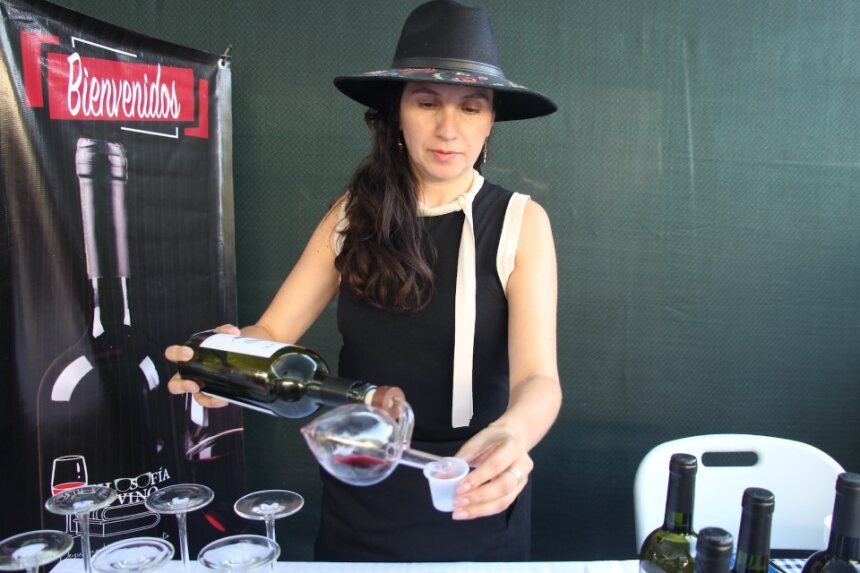
(Photo: Tracy L. Barnett)
Attendance has grown with each edition. “At the last bazaar we counted 106 people registered at the entrance,” Vielma said. “But we estimate that between 110 and 140 attended in total.” For Caminantas, she added, that growth means more visibility — and more community.
At one stand, Nélida Vásquez of Peru served creamy papas a la huancaína and a bright, layered causa rellena, while Karina and Héctor of Venezuela flipped steaming cachapas on the griddle. Nearby, Colombian environmental lawyer María Patricia Jiménez Fernández smiled behind a table piled with golden empanadas and trays of coconut sweets typical of her native Cartagena.
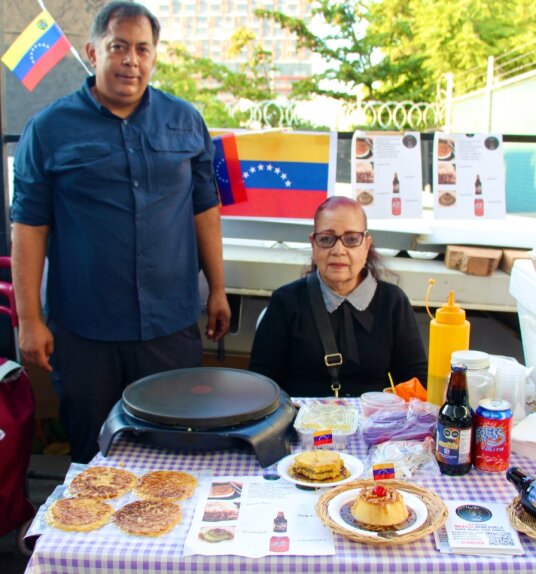
“I’m a lawyer by profession,” Jiménez said later. “I specialized in environmental education and law. I love everything related to the environment, and I came here because of circumstances beyond my control.”
She had worked on land restitution cases and environmental defense for campesino communities in Colombia when the threats began. “Because of that kind of work I’m here. Many lawyers like me have been forced to leave the country — some have even been killed. I had to leave my life, my work, everything, because of threats connected to the exercise of my profession as a lawyer.”
Now in Guadalajara under humanitarian protection, she is starting over. “I want to return to the work I love — law, and everything related to the environment. For now, participating in the bazaar is what allows me to make a living, and I am deeply grateful to Caminantas. At the same time, I’m studying to revalidate my degree here in Mexico so I can contribute my grain of sand through my specialization in environmental education.”
For now, she sells her empanadas and sweets at the bazaar, where she says she has found a new sense of community and strength.
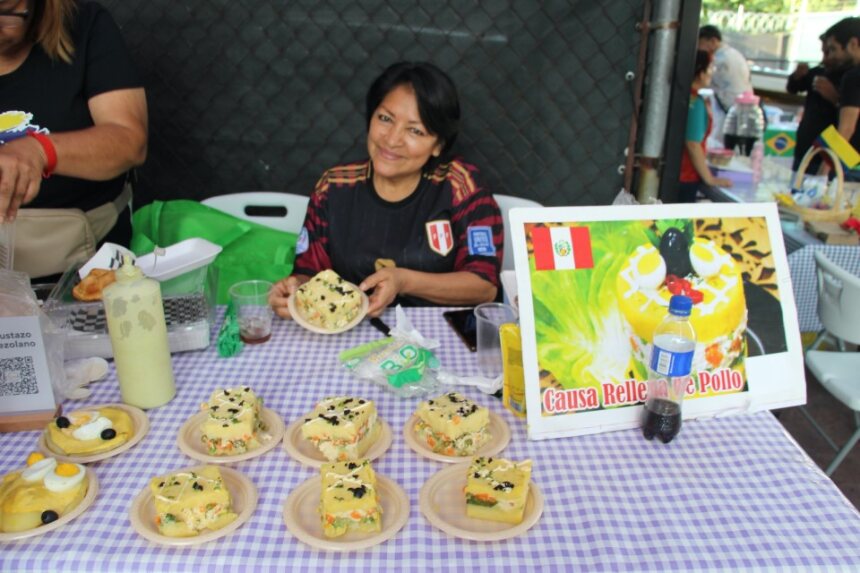
Vielma’s story mirrors that of María Patricia and many others in the Caminantas network. A geographer and human-rights defender, she arrived in Guadalajara in December 2020. “When I found Caminantas’ page on Facebook, I loved what they were doing,” she recalled. “I had worked with organizations in my country for territorial defense against a large-scale mining project.”
Now, through her work with Caminantas, she helps connect migrant women with services, training, and community partners — while navigating life as a migrant herself. “The bazaar isn’t just about selling,” she said. “It’s about rebuilding lives together.”
The spirit of that phrase filled the air that afternoon at Tantuyo: Vielma and Jiménez joined the line of women dancing to the beat of the Brazilian batucada, amid laughter and greetings as children played between the stands. As the sun dipped over Progreso Street, the rhythm quickened. Mariángel, María Patricia, and dozens more women linked arms and danced, their laughter rising above the drums. Children darted between them, clutching balloons and half-eaten empanadas. When the last beat landed, the women turned together to clear tables, stack chairs, and sweep the confetti-strewn floor — still smiling, still talking.
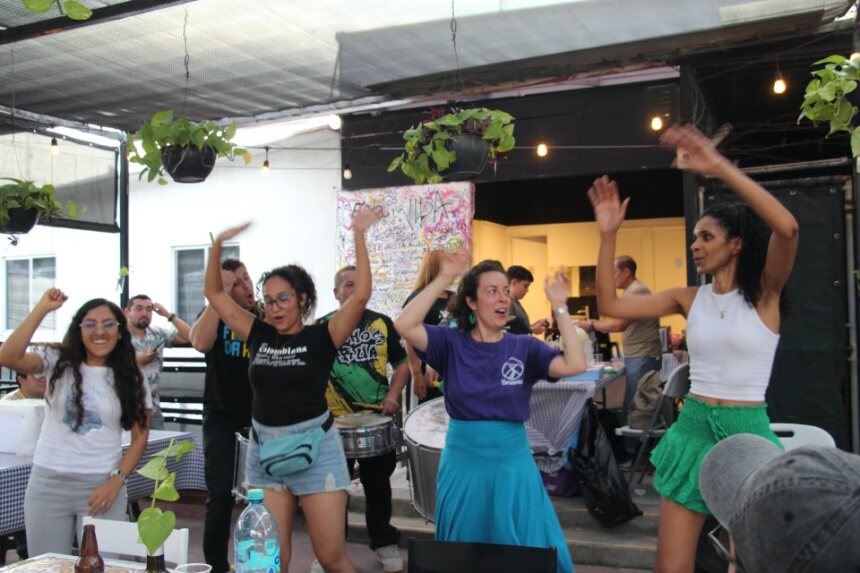
(Photo: Tracy L. Barnett)
For a moment, there were no borders, no asylum papers, no past to outrun — only the shared pulse of life, the sound of renewal.
“It’s about rebuilding lives together,” Mariángel had said. And that Saturday afternoon, in the heart of Guadalajara, that was exactly what they were doing.
“Each bazaar is like a map of Latin America,” Vielma reflected. “Each stand tells a story.”
Follow Caminantas: website: caminantas.org • Instagram/YouTube/X: @caminantasred • Facebook: @caminantas • WhatsApp: +52 33 2634 5979.
You can support Caminantas via PayPal. For a tax-deductible receipt, email [email protected] with your fiscal details.
- ‘Planting Is a Right’: Guadalajara’s Urban Ag Rebels Rally Against Proposed Regulations — Again - January 21, 2026
- The women who kept a Mexican pueblo above water — and stopped a megadam - January 15, 2026
- Reading the Earth: How Mexican scientists are using nature to find the disappeared - January 7, 2026
How beautiful to see these women collaborating and enjoying each other and life! love it!